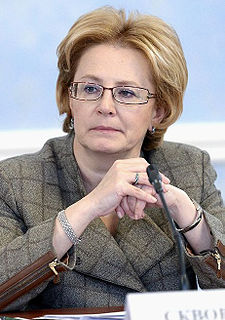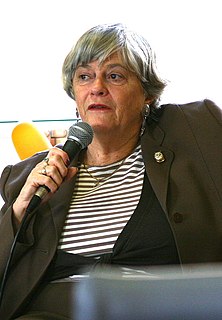A Quote by Kofi Annan
In an age where community involvement and partnerships with civil society are increasingly being recognized as indispensable, there is clearly a growing potential for cooperative development and renewal worldwide.
Related Quotes
The good society was, like the good self, a diverse yet harmonious, growing yet unified whole, a fully participatory democracy in which the powers and capacities of the individuals that comprised it were harmonized by their cooperative activities into a community that permitted the full and free expression of individuality.
Women hold up more than half the sky and represent much of the world's unrealized potential. They are the educators. They raise the children. They hold families together and increasingly drive economies. They are natural leaders. We need their full engagement... in government, business and civil society.
Like the Pentagon, our social science often reduces all phenomena to dollars and body counts. Sexuality, family unity, kinship, masculine solidarity, maternity, motivation, nurturing, all the rituals of personal identity and development, all the bonds of community, seem "sexist," "superstitious," "mystical," "inefficient," "discriminatory." And, of course, they are -- and they are also indispensable to a civilized society.
In the planning and designing of new communities, housing projects, and urban renewal, the planners both private and public, need to give explicit consideration to the kind of world that is being created for the children who will be growing up in these settings. Particular attention should be given to the opportunities which the environment presents or precludes for involvement of children both older and younger than themselves.
[T]here are, at bottom, basically two ways to order social affairs, Coercively, through the mechanisms of the state - what we can call political society. And voluntarily, through the private interaction of individuals and associations - what we can call civil society. ... In a civil society, you make the decision. In a political society, someone else does. ... Civil society is based on reason, eloquence, and persuasion, which is to say voluntarism. Political society, on the other hand, is based on force.










































